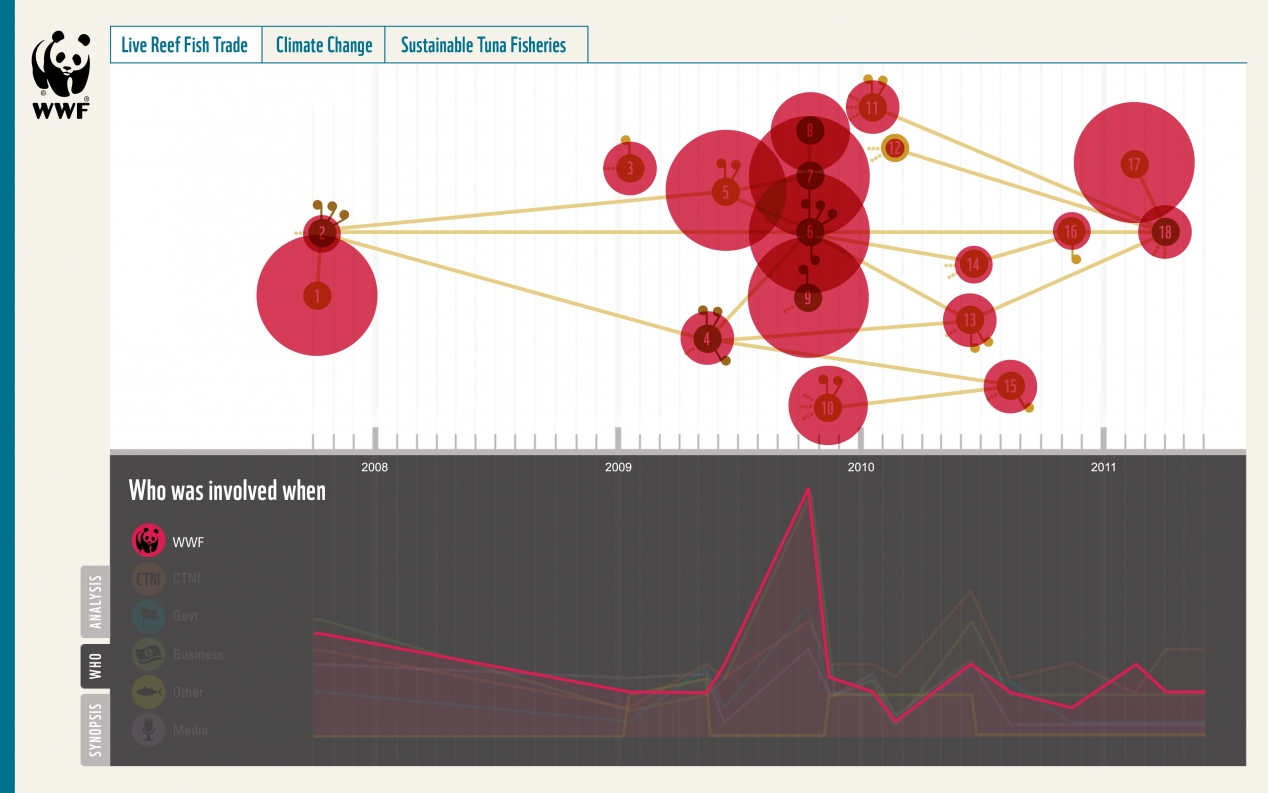Cause & effect data visualisation
Client: World Wildlife Fund

The Coral Triangle is the planet’s richest centre of marine life and coral diversity, with over 6,000 species of fish, 76% of the world’s coral species, and an awe-inspiring array of wildlife.
But overfishing, destructive fishing, unsustainable tourism, impacts of urbanization, and climate change are fast eroding this resource base.
The World Wildlife Fund is investing in the conservation of the Coral Triangle and wanted to create a better understanding of how certain strategic activities they have implemented have been effective with short, medium and long-term impacts.
The Brief
Resources from the Coral Triangle area directly sustain more than 120 million people living here and WWF were looking for a way to both measure their investment's effectiveness, and to communicate this complex information effectively to their diverse groups of stakeholders: internal, government, private sector, other NGOs and development partners to the Coral Triangle Initiative.
This project was to be a prototype to prove the communication effectiveness of this type of impact achievement reporting in order to raise funds to scale up across a wider range of WWF projects globally.
The Solution
Our solution was an instantly responsive, data-driven visualisation tool that conveyed the cause-and-effect link between the different events, entities and activities. It also included ‘mind-mapping tools’ for effective visual aid and ‘hover states’ giving the audience a quick overview of the event/activity and what it links to. Users could then click into each data point to learn more.
The database provided WWF with more valuable insights to create better-informed decisions around which spheres of influence to support moving forward. By adding information each year, the organisation could keep stakeholders updated and informed and adjust its approach as required.
The Results
WWF were pleased with the product as it assisted in supporting similar initiatives that consider the value of strategic events, which are critical when looking to build trust and awareness in political and geographical regions and on other intricate issues. Although WWF weren’t successful in raising the funds for full development they found the project extremely useful.
